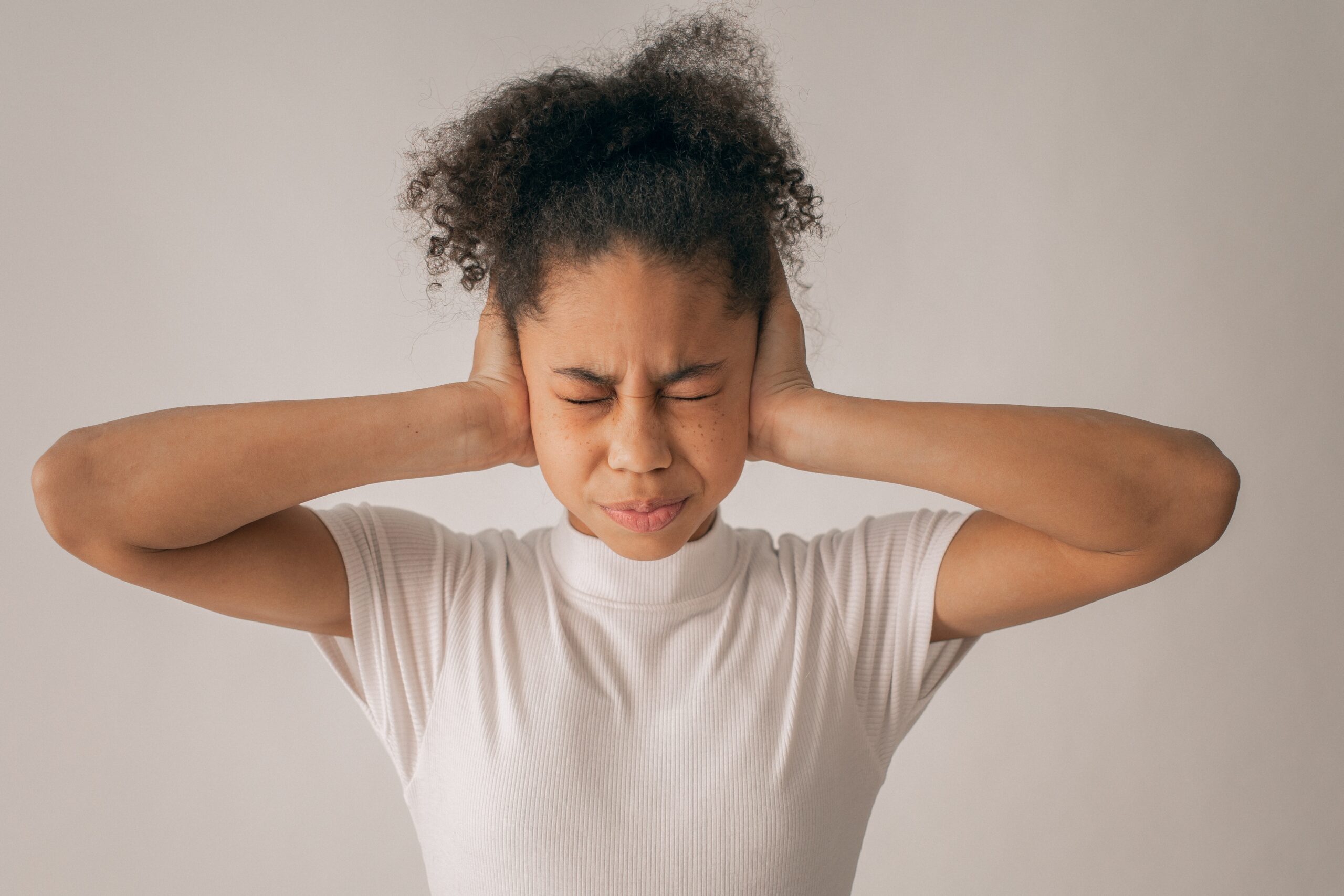7 Ways To Help A Teenager With Anxiety
Are you a teenager with anxiety?
Does your child struggle with teenage anxiety?
Whether you want to self help, or learn how to better support your teen to deal with anxiety in adolescence, this article will discuss different strategies to cope with this issue!
What is Anxiety?
Anxiety is a mental, emotional, and physical condition. It features worry, nervousness, or fear that is ongoing, excessive, and has negative effects on a person’s ability to function. Anxiety disorders involve too much anxiety, that is, anxiety is too intense, happens too often or is too much. This debilitating feeling could prevent you from functioning or being happy, cause you to miss school or avoid spending time with friends, or even leaving your house.
Anxiety disorders are the most common mental health conditions in children and adolescents, affecting 8-10% of this age group. Up to 30% of teenagers will develop an anxiety disorder during their lifetime. There are different types of anxiety, including:
- Generalized anxiety
- Obsessive compulsive disorder
- Specific phobias
- Social anxiety
- Panic attacks
- Post-traumatic stress disorder
Teenagers are at a unique point in their lives. There are many things to have anxiety over or in these formative years: dating, school, college/career decisions, friendships, hormonal changes, and more! If you are a teen with anxiety, know that your feelings are totally valid and that you deserve support!
Teen Anxiety Symptoms
Anxiety can invade our inner peace and fog our minds, but can also manifest physically.
Internally, a teenager with anxiety can be feeling:
- Constant and continuous worrying or rumination
- Restlessness
- Feeling tired easily
- Irritability
- Lack of concentration or focus
On the outside, teens with anxiety can show signs of:
- Shortness of breath
- Chest pain
- Muscle tension
- Headache or stomachache
- Fatigue and weak
- Trouble Sleeping
- Sweating or chills
- Shaking or trembling
As you can see, anxiety affects people in many different and challenging ways. These worries can hinder a teen’s ability to function: at school, at work, with friends/family, or in other areas of their life. Unfortunately, despite the major risks anxiety imposes on youth, many don’t receive treatment. This leaves adolescents having to deal with the stress of anxiety in teenage years which can continue into their adult life.
What a Teenager with Anxiety Experiences
Teenage years are hard enough without the stress and discomfort of anxiety looming over your head. If you are a teen, your world can feel ever-changing and evolving. Notably, your life can seem like it’s moving really fast. Very often, one minute you are a teenager with anxiety over something, the next minute something else pops in your mind.
Puberty and Self-Discovery
Being a teenager means that you are in a period of life where everything is changing! You experience these changes emotionally and physically. The way you look at the world and even how you look in the world changes. This can be an exciting time of metamorphosis, but overall is usually stressful for teens.
These challenges are especially evident in teenage girls. Studies show that after puberty starts, females show higher levels of depression and anxiety. Research suggests that interventions to help with anxiety should happen before the onset of menarche.
As teens navigate life, it can be difficult for them to open up and share their feelings, in particular the negative or unwanted ones such as anger, fear, sadness, shame, and guilt. Meanwhile, teens often suffer silently when they bottle up their emotions. If a teenager has alexithymia, that is, unable to express or share their emotions, they are more likely to have depression and anxiety. Research also shows that teenagers who do share their emotions and talk about their feelings are less likely to get depression.
Many teens are also experiencing self-discovery in this period of time. They seek to explore who they are and where they fit into the world. This may include learn and experiment their sexual or gender identity. In a 2013 survey of LGBT Americans, most people knew they were either gay, lesbian, or bisexual from ages 15- 18. Some people even had a feeling they were gay by 10 years old.
Forming Relationships
Teenage years are a time for youth to meet new people and form relationships. Friendships and romance can occur in these years. Since everyone is so young and still learning how to navigate their social circles, drama can occur. Many times, teens have anxiety over stress in these relationships.
High School and Academic Anxiety
Besides from the social aspect of high school, students have to deal with a greater amount of school work now. Many teens find it hard to keep up with their assignments and papers. There are a lot of factors that can cause this: learning disabilities, unstable living conditions, problems in their family, friend drama, mental health challenges, and more.
As mentioned before, the way teens are able to cope with their emotions is important. Researchers suggest that emotional intelligence can be a protective factor against academic anxiety.
There is growing research that suggests that children of immigrants experience higher risk of mental health problems. Furthermore, Mind Connections specializes in helping our Asian American clients. The HRC says that 6 in 10 AAPI are immigrants to this country. Immigrant children know what their parents went through to create a better life for them. Due to this gratitude and awareness, they fear bringing disappointment to their family.
Effects of the Media on Teens with Anxiety
High School is a stressful time. When a teen enters high school, they don’t know what to expect. The media inappropriately glamorizes these 4 years with unrealistic television shows or movies. This can mess with a young person’s ideas around what they are getting themselves into.
Social media has a powerful hold on the youth of today. Unlike other before it, the majority of this teenage generation grew up with the highly-advanced internet at their finger tips since birth. Social media makes many teens feel about about themselves, develop poor body image, experience online bullying, and more. All of these factors can lead to stress in a teenager with anxiety.
These platforms are harmful ways to people’s lives. Social media can negatively effect the mental well-being in both teenagers and adults. To learn more, check out our article here!
Ways to Cope with Anxiety as a Teenager
First, Work on Understanding Your Emotions
As mentioned before, expressing and sharing emotions helps teens with their anxiety. Ways to boost your emotional intelligence and understanding are:
1. Journal about your feelings
Journaling allows you to explore your emotions through written expression. You can vent your emotions onto paper and review your thoughts after. You can simply identify your emotions as what they are. Understand and acknowledge that their existence is very common and normal. Everyone experiences emotions whether they are positive or negative. Ask yourself questions like:
- How am I feeling?
- If I am anxious, when did I first start feeling this way?
- What was I doing/who was I with when I became stressed?
Use these journal entries as ways to study yourself and gain emotional intelligence about yourself. You can describe your emotions, for example,
- “I am upset that my friend made fun at me.”
- “My teacher’s comments made me feel embarrassed.”
- “I feel nervous in the class presentation today”
2. Other Effective Ways to Express Emotions
Besides journaling or writing, there are so many other activities teens can do to reduce anxiety. For example, singing, dancing, exercising, laughing, praying and playing with pets are all effective outlets for expressing emotions.
3. Let out a good cry
Crying is a healthy coping mechanism and a useful form of releasing anxiety and irritability. To learn more, read our article here.
Second, Practice Mindfulness
Mindful meditation has proven to change the structure and function of the brain, and it’s an effective way to promote relaxation while reducing anxiety, depression, and stress. Studies have shown that people who took part in mindfulness therapy practices experience decreased levels of stress. When we get stressed, our bodies naturally try fight off whatever is threatening our feeling of stability and safety.
When people have anxiety, it may feel like our guard of protection is never fully lowered. Mindfulness practices, like meditation, helps to alleviate anxiety. The rational behind it is, it channels the regulatory processes in our bodies that make us feel relaxed.
One great way to practice mindfulness is through meditation. Meditation allows people to feel calmness and stillness in the present moment. Guided meditations are meditations that is led by another person. This person uses their soothing voice to instruct/lead you on your journey to inner peace.
Mind Connections founder, Dr. June Cao, helps listeners practice mindfulness breathing meditation to manage anxiety and depression in her new video.
Third, Trace Teen Anxiety to Specific Situations and Thoughts
By tracing your anxiety to specific situations and experiences, you may identify the triggers of your anxiety. For example, if you feel anxious of not fitting in at the new school or camp, some thoughts may be
- “What if they judge me?”
- “I’m afraid they’ll laugh at me.”
- “What if they don’t like me?”
Once you identify your negative thoughts, it is time to correct yourself in the moment. It goes without saying that you survived past experiences when you overcame difficulties. Similarly, it is also essential to tell yourself thoughts come but they do not stay with you forever. Indeed, you can let go those thoughts by paying attention to your breathing or other mindfulness activities. These thoughts can help to put you in a better frame of mind. For example,
- I’ve done presentations before and I can do this one, too.
- What is in my head is just a thought, not a fact.
- My anxiety makes me feel uncomfortable, but it is not dangerous. I’ll make it through this.
Forth, Practice Positive Affirmations
Practicing positive affirmations is to help to put you in a better frame of mind with rational thoughts. This shift can come to you more easily and automatically with practice, eventually shaping new thinking habits to reduce anxiety. Try repeating positive affirmations that acknowledge your negative thoughts or emotions and let them go. In other words, anxiety is what happens to you, but not who you are. Undoubtedly there are so many strengths in you. Spend more time noticing them. Remember to remind yourself:
- I am a good person!
- As I relax and slow my breathing, anxiety flows out.
- I’ll make through this.
When you deal with teen anxiety, remind yourself other times when you were initially afraid but still managed to enter into new situations, such as junior high school or camp. Praise yourself when you take part in spite of your uneasiness. That is, you are proud of your ability to act in the face of considerable anxiety.
Fifth, Take Baby Steps to Reduce Teenage Anxiety
Set small goals for things that you feel a little anxious about. Gently encourage yourself to do the things you feel anxious about. For example, you might be anxious about performing in front of others.
- As a first step, you could practice your lines in front of the family;
- The next step may involve getting a small group of friends to see your practice;
- The last step may be to perform in front of a bigger group before you eventually do it in front of a larger audience.
This way, you build your tolerance of fear. Eventually, you can better manage your anxiety.
Sixth, Engage in Self-Care
When you are anxious, you need to show your body and mind support. In fact, self-care allows you to nurture your body and give it the attention it needs to calm down and cope with anxiety. Ways to improve self-care for a teenager with anxiety could include:
- Getting your body moving though exercise
- Stretching or yoga
- Getting enough restful sleep
- Eating nutrient filled food
- Drinking ample water
- Taking a break when you start feeling stressed out or anxious
Seventh, Ask for Help
1. Seek Social Support
Growing up as a teen, social support is important. If you are lucky enough to have supportive loved ones, turn to them when you are feeling anxious. Ask them if you can vent your emotions ad listen if they offer any solutions to your problems.
If you are in search of social support, try joining new things! High school is full of diverse clubs and programs you can be a part of and meet many people from! You are not alone – so many people are in search of friends just like you are!
2. Seek Professional Help
If you are a teenager with anxiety, don’t avoid help! Your emotions and feeling are valid and deserve to be supported. Reach out to an adult like a parent, counselor, trusted teacher, or coach.
Talking to a therapist can help you deal with your anxiety, as well! A therapist can help you cope with your anxious thoughts, find methods of relaxation, support your emotions, and give you the advice you need to live a less-stressful life. The therapists at Mind Connections would love to support you!
Content Creator, Victoria Gallo; Reviewed by Dr. June Cao







